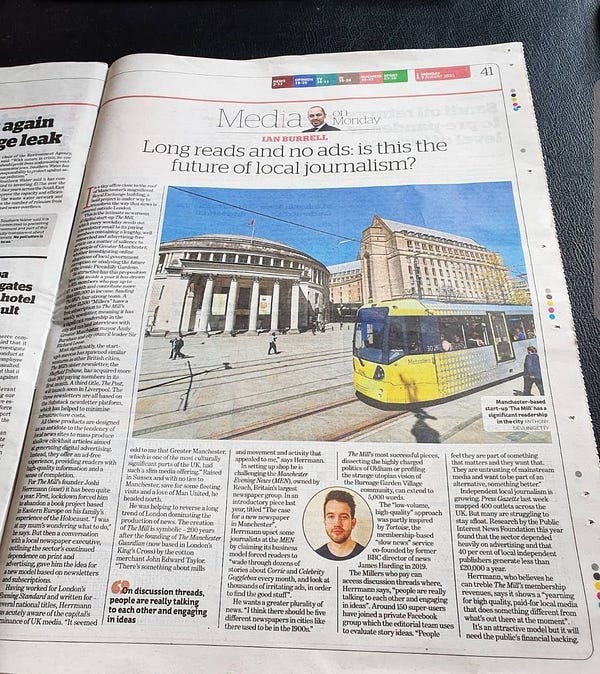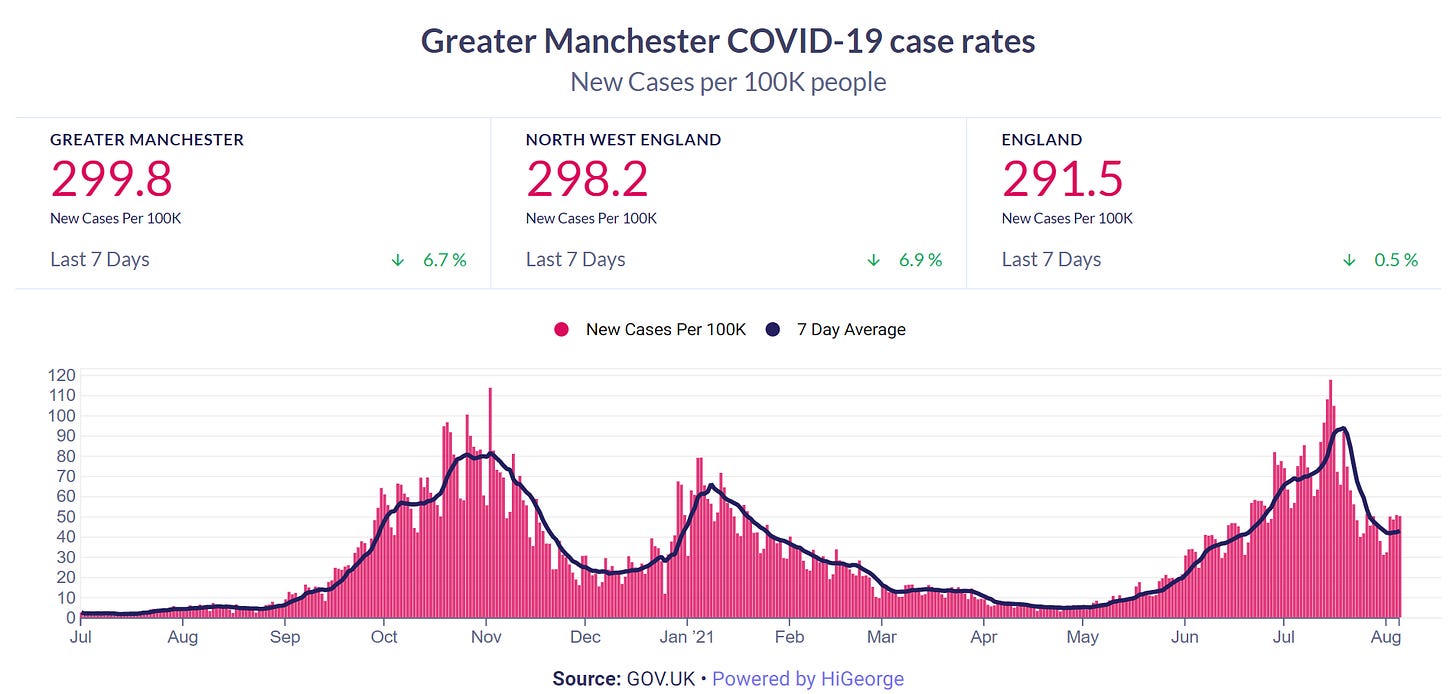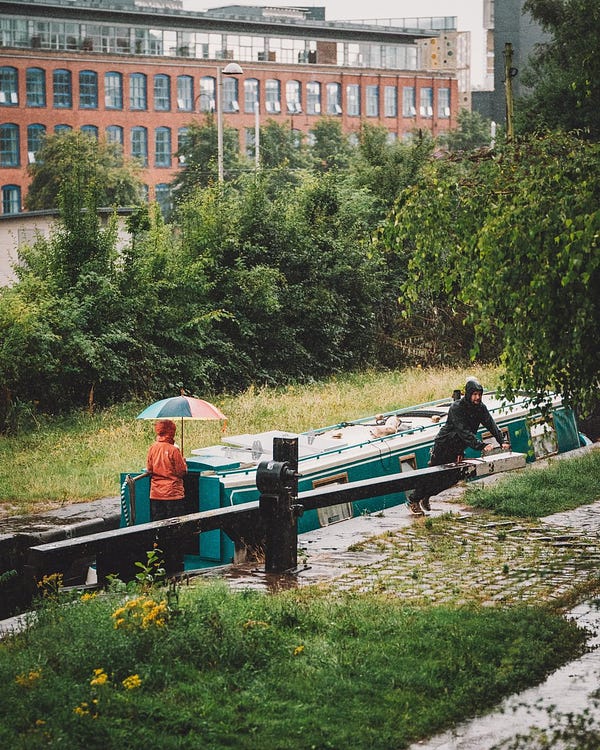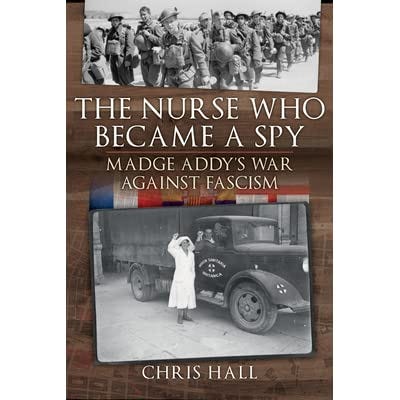Dear Millers — welcome to this week’s briefing. Scroll down for an exciting appearance by us in today’s papers.
In case you missed it: our weekend read by Rachel Pugh took a look at the amazing life and career of Dr Tony Redmond, a pioneer in emergency medicine who has attended dozens of major disasters across the world. You can read that piece here.
It’s been a big week of chronicling extraordinary lives in Greater Manchester. Last week we sent Mill members an interview with the Hulme-based poet and playwright Louise Wallwein MBE, who told us about being brought up by nuns in Didsbury. We also published a moving profile of Mike Little, the man who co-founded WordPress, a tool that powers almost half the internet.
Among other things, Mike talked about the racism he suffered at school in Stockport as a kid — here’s a passage from the piece:
The circumstances of his upbringing meant that he had an unusual relationship with being Black, and struggled to work out his identity. At home, the family watched the racist TV shows of the decade, like Love Thy Neighbour and The Black and White Minstrel Show. “I think it almost certainly made me feel less about myself,” he says. At school, where he was one of the only non-white students, he was singled out and felt isolated and unhappy. When he’s describing his experience of school, he tells a strange and disturbing anecdote, still so bizarre he almost seems surprised when he thinks of it.
It was his nickname: Enok. Or that’s how he came to spell it. But really the other kids meant it as Enoch. Soon after Enoch Powell’s notorious Rivers of Blood speech, which catapulted the ring-wing Conservative MP into the national conversation and sparked a deeply divisive debate about the repatriation of Commonwealth migrants, kids at Mike’s school started shouting “Enoch” at him. Then, because it happened so often, he started answering to that name. “They were 10 or 11 years old, they didn’t really understand politics,” he says. “But it got to the point where teachers didn’t know my real name. I was Enoch for the whole time I was there.”
To read those stories and get all our members-only reporting in your inbox, join up as a member.
This week’s weather
Covid-19 update
Case rates: The case rate for Greater Manchester is 299.8, down 6.7% versus the previous week, compared to England’s 291.5, down just 0.5%. The rapid decrease in case rates we’ve been seeing over the past few weeks is now starting to slow. Salford continues to have the highest infection rates in GM, with a case rate of around 300. Bolton has the lowest, near the 200-mark.
Hospitalisations: There were 66 Covid-19 patients in critical care in GM’s hospital’s last week, up by 3 from the week before. The total number of patients with the virus in our hospitals is 370, down from 388.
Vaccinations: Just over 1.5 million people in GM (or 63% of adults) have now had two doses of a Covid-19 vaccine. 92% of over-70s have received their second dose, 85% of 50-69s, 45% of 18-49s. These numbers were updated on 1 August, and for context, the number of GM residents who are double jabbed has only risen by 207,927 since 3 July, which shows how the vaccine programme has slowed down recently. If that pace continues, it would theoretically take until after Christmas to vaccinate every adult in GM.
‘The future of local journalism’
Some exciting news about The Mill for a change. Straight after reading this newsletter you should pick up a copy of the i newspaper, which has published a lovely piece about us today.
Media editor Ian Burrell writes: “In a tiny office close to the roof of Manchester’s magnificent Royal Exchange building, a bold project is underway to transform the way that news is covered outside London.” Find it on page 41 of the paper, or online here.


Symbolic: The piece goes on to say we are “helping to reverse a long trend of London dominating the production of news. The creation of The Mill is symbolic — 200 years after the founding of the Manchester Guardian (now based in London’s Kings Cross) by the cotton merchant John Edward Taylor.”
Millers will know that The Guardian’s former office was directly opposite the Royal Exchange — there is now a plaque on the site where the paper was based from 1841 to 1970.
Today’s piece in the i really captures what we are trying to do and the progress we have made over the past year thanks to our brilliant writers and supportive members.
It says we are “an antidote to the tendency of local news sites to mass produce shallow clickbait articles aimed at generating digital advertising.”
And the paper reports: “The Mill’s most successful pieces, dissecting the highly-charged politics of Oldham or profiling the strange utopian vision of the Burnage Garden Village community, can extend to 5,000 words.”
Burrell concludes by writing: “It’s an attractive model but it will need the public’s financial backing.” What better time to give us your backing and join as a member if you haven’t got round to it yet — just hit the button below!
Home of the week
Is this 17th century Grade II listed converted barn in Ashton-under-Lyne the most garish house north of Alderley Edge? It has 4 spacious bedrooms, a huge garden and a swimming pool. It’s on the market for £790,000.
Other local news in brief
The north west has brought home the most Olympic medals with 20 athletes from this region standing on the podium at the Olympics, The Times reports. “The sound of Mancunian accents on the airwaves has become commonplace at this year’s Games as the city and its nearby towns lead the way in Britain’s gold rush.” Read more
A 19-year-old Tameside man has been charged with the murder of his 15-year-old sister. Matthew Selby of Windermere Crescent, Ashton-under-Lyne, appeared in Mold Crown Court last week via video link. Amanda Selby was killed at Ty Mawr Holiday Park in Wales. Read more.
The director of HMP Forest Bank, a privately-run prison in Salford, has stood down after the facility was given a 45-day improvement notice. According to operator Sodexo, Matt Spencer is to “pursue new opportunities.” Between 2016 and 2019, HMP Forest Bank had the “highest number of drug seizures of any prison in England and Wales.” Read more.
Grist to The Mill: If you want to tell us about a story or pass us some information, please email joshi@manchestermill.co.uk, mollie@manchestermill.co.uk or dani@manchestermill.co.uk. We are always happy to speak to people off the record in the first instance, and we will treat your information with confidence and sensitivity. Get in touch.
Things to do
Theatre | A new play by acclaimed northern writer Joseph Charlton is showing at the Lowry in Salford this week only and we think it looks fascinating. Emma Corrin stars in Anna X, a story about two outsiders struggling to fit into New York’s social elite scene, apparently inspired by real life events. Book here.
Pride | The Gherkin in Levenshulme is running a week of events to celebrate Pride, starting with Chippy Tuesday tomorrow. There will also be a film club, meat-free disco and a glitter litter pick. For more information visit their Facebook page.
Exhibition | Manchester Hip Hop Archive has taken over Central Library — it’s the first-ever hip hop archive in Manchester and it covers 40 years of the genre’s lifestyle and subculture. Expect plenty of Mancunian hip hop nostalgia. It’s free to visit, more information here.
Podcast | BBC Sounds has a great new podcast series called Homegrown Heroes, exploring the origin stories of some of Britain’s stars. We enjoyed this interview with Blossoms, the indie band from Stockport, about why their hometown is much more than just hats. “All the nanas have still got their Liam Gallagher haircuts. Builders in the pub at 2, you see them busy working and then they’re in the pub. That’s quite Stockport.” Listen here.
Video | The Meteor has produced a lovely video interview with a local man who is spending his retirement voluntarily litter picking in Parrs Wood, freeing up areas where children might want to play. “My experience is that it doesn’t tend to get littered as much once it’s been cleared,” he says. Watch it here.
Walk | There are a few alpaca walks going on this week at the children’s zoo at Walton Hall in Warrington, promising a bit of zoology education and views of the beautiful country estate. Book here.
Book of the week: The Nurse Who Became a Spy
We enjoyed this historical book by writer Chris Hall about the short-lived flings, near-catastrophic bombing injuries and whispered conversations of a Chorlton nurse-turned-spy who served in the Spanish Civil War and the Second World War. Spying in the 1940s, Madge Addy would pretend to be a wealthy Norwegian citizen, smuggling secret messages sewn into her fur coat past the Nazis for the Allies.
The Nurse Who Became a Spy is available to buy here.
Past and future of Pomona
This 1953 photograph shows Pomona Docks, a set of five docks on the Manchester Ship Canal in Salford. We have an in-depth report on what the future holds for Pomona coming up soon. The photo is available to buy as a print here.
Our favourite reads
BBC: Ashley John-Baptiste writes about “when council estates were a dream”, including the “garden city” of Wythenshawe. “In 2007, when Conservative leader David Cameron wanted to highlight the issue of anti-social behaviour, he went to Wythenshawe. A photograph of a hooded youth pointing his fingers like a gun was widely used in newspapers.”
Daily Mail: This profile of Farrah Storr, a Salford-born journalist who currently edits Elle Magazine, explores identity, diversity in the media and “regional accents on the front row”. “I have totally embraced my heritage now — I am very proud of it. But remember, I was growing up in eighties Manchester, and it was tough. The word 'P*ki' was bandied about and, as a kid, you try to protect yourself.” Read more.
Daily Telegraph: Jason Kenny is now Britain’s most decorated Olympian after winning the men’s keirin and his wife Laura Kenny is now the most successful female Olympian. We enjoyed this interview with the Manchester-based couple. "While Laura understates her own racing achievements with a breezy Essex charm, Jason is described by his father as ‘just an ordinary Bolton lad.’”
Guardian: We enjoyed this piece from The Guardian archives, first published 1954, about new blood in the rag-and-bone trade in Manchester. Rag-and-bone traders would go out on foot (those who were more prosperous took a pony and cart). “The hard-working modern rag-and-bone man who goes out each day (many pre-war collectors ‘just went out when they felt like it’) covers a lot of ground — often as much as thirty miles a day — pushing a handcart.”
Prospect: A while back we published an excellent members’ story by Sophie Atkinson on the state of publishing in the North and whether the big publishing houses were living up to their plans to relocate staff here. In this piece, Richard Smith tackles a related question: how northern is the northern novel? He writes: “Nowadays, in order to rake up the requisite northernness, today’s novelist has either to look back into the past or reach sideways into a folk-north repository of all our obsolete grit and outworn gumption.”
Letters to the editor
Some years ago, I got up in the morning to find my fridge/freezer out of action. (‘The rise of repair shops and the fight against throwaway consumerism’). I didn't want to replace it as it wasn't old enough to get rid of. I then had to spend the better part of a day trying to find someone to repair it — only to find that it meant paying an exorbitant amount per month into a crappy insurance scheme — and they didn't even have anyone working at weekend. Eventually I found an independent repairer who came out and dealt with it at a very reasonable price, but he told me that people like him were a dying breed. I would certainly use a repair cafe if there was one in my neighbourhood. I would prefer to pay for a project of that type. It would be good if these cafes could train up young people in repair work, thus ensuring skills are passed on to the next generation. Elaine, Bury


This is a lovely piece (‘We need to cry as much as we need to laugh’). My children are adopted and some of the themes around identity and belonging really resonate. Thanks for another fascinating article. These stories from our region make me proud of where we live. Jonathan, Chorlton
In the early 1980s I lived two doors down from Dr Denis Edwards, he is in the centre right of Tony’s picture of Lockerbie, at the start of this piece (‘Manchester’s disaster doctor looks back’). Denis grew up on Langley estate in North Manchester, married Sue, had kids and was the youngest consultant physician ever to have been appointed in Intensive Care at Withington Hospital. He was small-framed and wiry and climbed mountains for fun. He piled into our kitchen with his daughter Francis on his shoulders on a Saturday morning and rarely spoke of work. He had a high-pitched giggle that carried him along. We’d have pints in the Railway on Lapwing Lane, and he’d open up about his frustrations and his near zealot passion to improve treatment for the very sick. He preached nursing above technology. He was funny and mischievous, his mind nimble and quick. Yes, he was part of Tony’s SMART team, and an NHS whistleblower down the ears of Granada’s ‘World in Action’. His reputation amongst clinicians was global. He is largely responsible for the acclaim of the North West Cardiac Centre at Wythenshawe Hospital. Our last conversation was at the Tesco checkout in East Didsbury. I last saw Dr Denis, white-haired and on crutches, going into an off-licence on Barlow Moor Road at 11am. Dr Denis Edwards retired prematurely in 1990 due to stress-related ill-health. He died in 2012, aged 63. I missed his funeral. Phil, Wythenshawe
If you would like to use our letters page to remember a friend or colleague in Greater Manchester, please just send over your letter to editor@manchestermill.co.uk.












